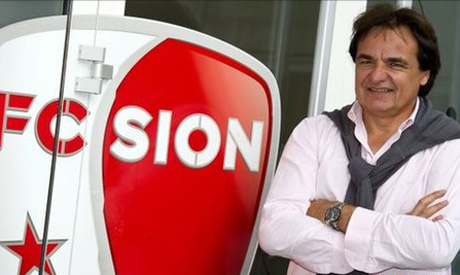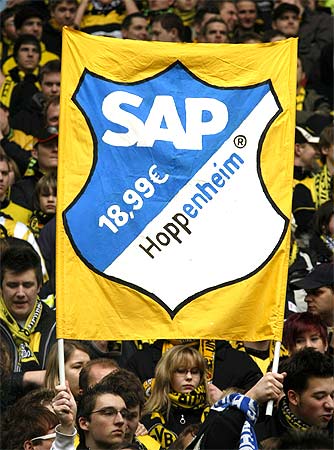Now here's something. While FIFA swells its chest and promises the world it's changing its ways with a raft of new reforms carrying the imprimatur of Transparency International, it sells the Asian TV rights to a company run by Philippe Blatter, the nephew of FIFA president Sepp Blatter.Fink suggests that transparency might help, and suggests some of the information that FIFA should make public:
So what made Infront the winning bid for Asia? Will we ever know? Will FIFA release the tender documents that substantiate Ericson's claim that it was the "best package"?Transparency International must be feeling the sting of having FIFA invoke its good name in support of its actions. The BBC reports that TI also sees the Infront deal as not particularly consistent with good governance and has also called for greater openness with information:
It's a perfect opportunity for FIFA to show just how transparent it is but don't hold your breath.
Fifa announced yesterday it had appointed Infront Sports and Media to handle the sale of World Cup TV rights in a number of Asian countries for the 2018 and 2022 tournaments.For its part, FIFA explains that its Finance Committee made the recommendation of Infront which was ratified by its Executive Committee (pictured at the top of this post). Sepp Blatter chairs the executive committee. FIFA clearly saw this as problematic because in a statement to the BBC FIFA explained that specific actions were taken based on this apparent conflict of interest:
But they failed to disclose the president of Infront is Philippe Blatter, the Fifa president's nephew.
The announcement came a week after Fifa set out a two-year plan, working closely with Transparency International to reform the organisation following a series of damaging corruption scandals.
Sylvia Schenk, the author of Transparency International's damning report on Fifa, told the BBC that even if Sepp Blatter played no part in the decision to award the contract, it raised questions again about the governing body's lack of accountability.
She said: "When you have a situation where two relatives are in leading positions in two companies which agree a significant contract, it is of utmost importance for Fifa to be as transparent as possible regarding the decision-making process and Sepp Blatter's involvement in that decision.
"Given the situation Fifa is in right now, it would be better for Fifa to be more pro-active with their information where there could be a perception of a conflict of interest."
"The Fifa president is not a member of the finance committee and was not present when the decision was made. The Fifa president did not take part in any meetings or discussions and was not involved in the tender process."The 2009 FIFA Code of Ethics has this brief section on Conflicts of Interest (PDF):
1. Before being elected or appointed, officials shall disclose any personal interests that could be linked with their prospective function.Given the vagueness of these guidelines, it does appear that transparency is the only way that FIFA begins to gain some credibility. Consider that the chair of its Ethics Committee stands accused of bribery, a charge that he refutes the chair of the Finance Committee is under investigation for bribery, which he also refutes, and Sepp Blatter is the chairman of the Executive Committee which makes final decisions for FIFA, including those on conflicts of interest (as far as I can tell from the vacuous guidelines reproduced above). One might be forgiven for thinking that the entire governance structure is compromised from top to bottom.
2. While performing their duties, officials shall avoid any situation that could lead to conflicts of interest. Conflicts of interest arise if officials have, or appear to have, private or personal interests that detract from their ability to perform their duties as officials with integrity in an independent and purposeful manner. Private or personal interests include gaining any possible advantage for himself, his family, relatives, friends and acquaintances.
3. Officials may not perform their duties in cases with an existing or potential conflict of interest. Any such conflict shall be immediately disclosed and notified to the organisation for which the official performs his duties.
4. If an objection is made concerning an official’s existing or potential conflict of interest, it shall be reported immediately to the organisation for which the official performs his duties.
5. The deciding authority of the relevant organisation shall decide on such conflicts of interest.
In such a circumstance, as Fink argues above, the Infront case provides a perfect case for FIFA to operate under a full disclosure -- of both its internal governance mechanisms as well as its decision making process that resulted in a company headed by its President being awarded a substantial contract.
While it is unclear what FIFA is going to do, an interesting subplot that is developing is the relationship of Transparency International to FIFA. Something is going to have to give in one of the two organizations.













































